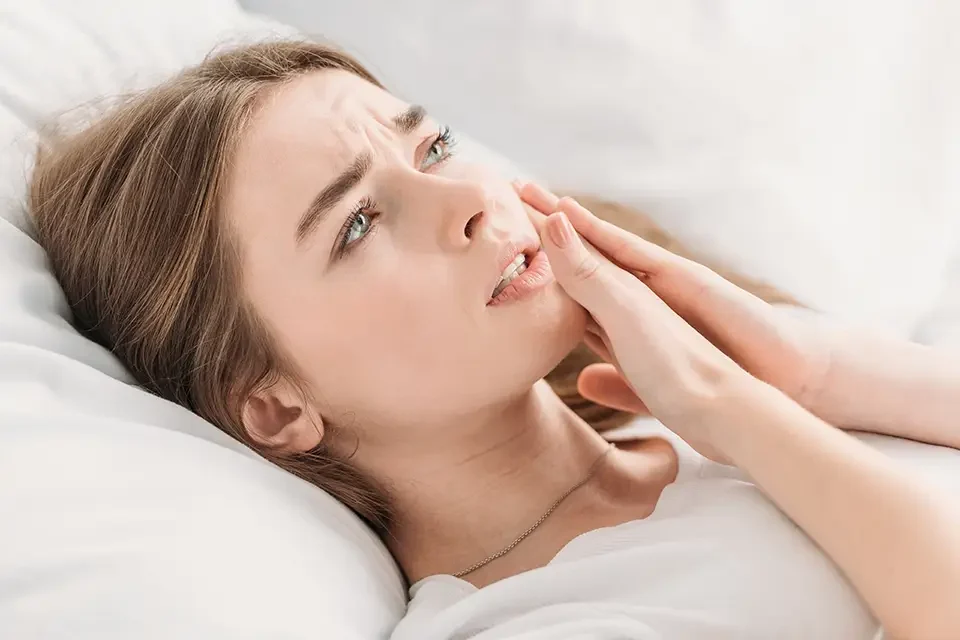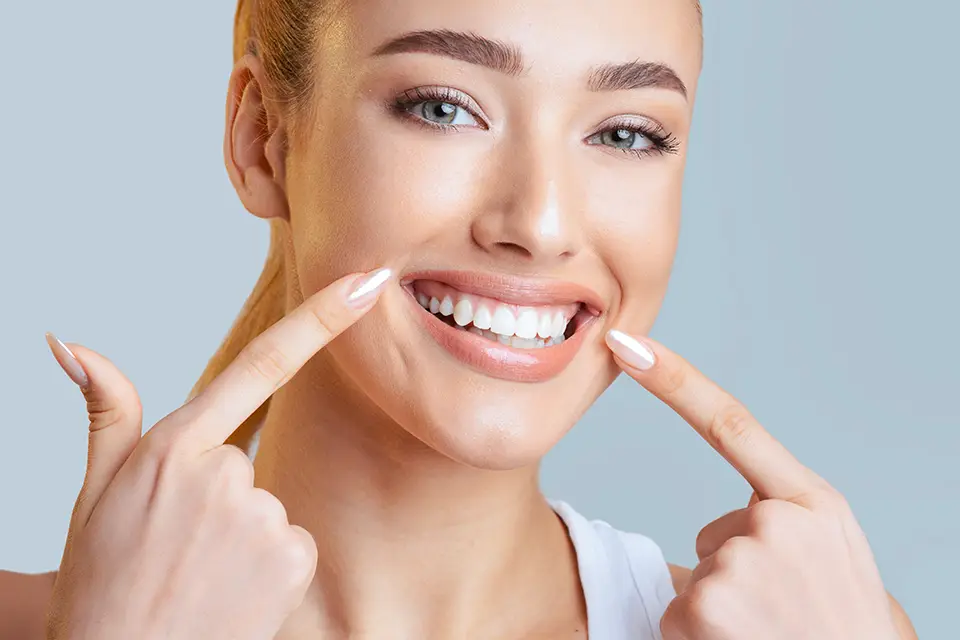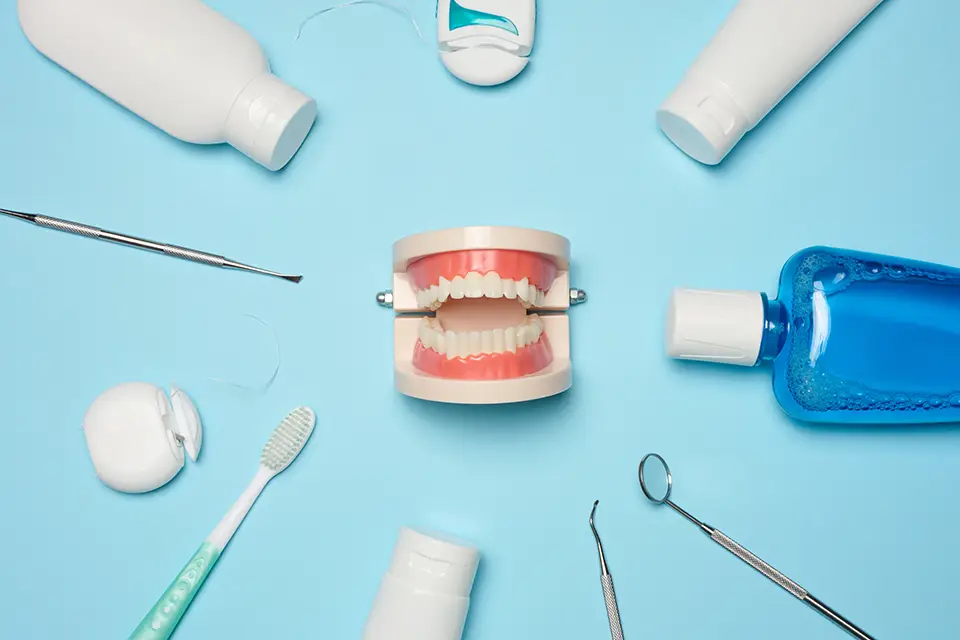Grinding teeth in sleep, also known as nocturnal bruxism, is a common but often overlooked condition that affects people of all ages. While many believe that teeth grinding is only a problem for adults, children can also suffer from it, emphasizing the importance of awareness in pediatric dentistry. Understanding the causes, symptoms, and treatment options for teeth grinding can help you avoid long-term dental problems and promote good oral health.
What Causes People to Grind Teeth in Sleep?
Several factors can contribute to grinding teeth in sleep. Stress and anxiety are common triggers for adults, but other factors include:
- Sleep Disorders: Conditions like sleep apnea or snoring are frequently linked to bruxism.
- Misaligned Teeth: An uneven bite can cause grinding as the teeth naturally try to “fit” during sleep.
- Genetics: If a family member experiences bruxism, it’s likely to pass on genetically.
- Lifestyle Factors: Excessive caffeine or alcohol consumption, particularly before bed, can exacerbate teeth grinding.
Teething, growth phases, or the temporary discomfort of dental development can all contribute to children grinding their teeth while sleeping. Pediatric dentistry provides specialized techniques to treat bruxism in young patients, keeping their dental health on track.
Signs You May Grind Teeth in Sleep
Teeth grinding is often detected during a dental exam or by a sleeping partner. However, if you’re unsure, look for these symptoms:
- Worn or Damaged Teeth: Grinding can cause chipping, cracking, or excessive wear to the teeth’s surface.
- Jaw Pain and Headaches: Bruxism most frequently leads to soreness in the jaw and neck muscles or morning headaches.
- Ear Pain or Discomfort: While not directly related to the ear, tension in the jaw can occasionally cause earache-like symptoms.
- Sleep Disturbance: Grinding can cause restlessness and poor sleep quality.
Children may exhibit symptoms such as sore jaws or excessive tooth wear. If you suspect your child grinds their teeth while sleeping, you should consult a pediatric dentist for advice tailored to their specific dental needs.
Why Grinding Teeth in Sleep is Harmful
Teeth grinding can have significant, long-term effects on oral health if left untreated:
- Tooth Damage: Continuous grinding can wear down the enamel, making teeth more prone to decay and sensitivity.
- Jaw Disorders: Bruxism can result in temporomandibular joint (TMJ) problems, causing pain and limiting jaw movement.
- Sleep Disruption: The grinding itself may prevent a good night’s sleep, causing fatigue and affecting daily function.
- Increased Risk of Dental Work: Grinding can damage teeth, necessitating crowns, fillings, or even root canal treatments.
Untreated teeth grinding in children can interfere with healthy tooth development, potentially leading to orthodontic issues in the future. Pediatric dentistry focuses on early intervention to protect young patients from these risks.

Treatment Options
Fortunately, there are effective treatments for grinding teeth while sleeping, tailored to the patient’s age and the severity of the bruxism:
- Mouth Guards or Splints: Dentists frequently recommend custom-made mouthguards to create a barrier and prevent further damage to the teeth.
- Behavioural Therapy: Stress reduction techniques such as meditation or counselling can help to reduce anxiety-induced teeth grinding in sleep.
- Medication: Muscle relaxants prescribed by a healthcare provider may be effective in severe cases of bruxism, though this is less common.
- Orthodontics: For people with misaligned bites, orthodontic treatments can help realign teeth and prevent grinding.
- Lifestyle Adjustments: Limiting caffeine and alcohol, especially before bedtime, can help reduce grinding tendencies.
Treatment approaches in pediatric dentistry are designed specifically for young patients. Children typically outgrow teeth grinding, but a dentist may recommend a specialized mouth guard for nighttime use if necessary.
Can Grinding Teeth in Sleep Be Prevented?
Although you cannot always avoid bruxism, the following measures can help reduce the frequency and intensity of grinding:
- Reduce Stress Levels: Practicing relaxation techniques before bedtime, such as deep breathing or reading, can help reduce stress-related grinding.
- Maintain Good Sleep Hygiene: Create a relaxing bedtime routine and stick to a regular sleep schedule to promote better sleep quality.
- Visit Your Dentist Regularly: Regular check-ups allow your dentist to monitor your teeth for signs of grinding and identify potential problems early on.
FAQs
Is grinding teeth in sleep common among children?
Yes, teeth grinding in sleep is common in children and often linked to dental development or temporary factors. Pediatric dentistry provides specialized care to manage bruxism in young patients.
Can grinding teeth in sleep lead to long-term damage?
If left untreated, bruxism can cause significant damage to teeth and lead to jaw disorders, dental sensitivity, and the need for restorative dental work.
Is there a way to stop grinding teeth in sleep without a mouthguard?
Reducing stress, maintaining a healthy lifestyle, and practicing good sleep hygiene can help. However, mouthguards remain one of the most effective ways to protect teeth during sleep.
Grinding teeth in sleep is manageable with the right awareness and care. Addressing bruxism early through preventive measures or custom dental appliances can help you maintain good oral health. Sunshine Dentistry in Richmond Hill, Ontario, provides expert guidance and solutions tailored to each patient’s needs, including specialized pediatric dentistry for our younger patients. If you or a loved one is experiencing teeth grinding, schedule a consultation today to discuss the best treatment options.



